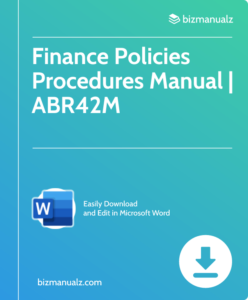Do You Record in Ledger or Journal First?

Do you record in ledger or journal first? It’s a crucial topic that must be explored for effective financial transaction recording. Traditionally, businesses would start with the journal then transfer to the ledger. But modern tech and accounting practices allow for direct input into specialized software or spreadsheets. Do you record in ledger or journal first?
Differences between a ledger and a journal
It’s important to consider your business needs and resources when deciding which approach to take. Traditional bookkeeping offers accuracy but computerized systems offer efficiency and real-time updates. Choosing depends on factors like transaction volume, account complexity, and tech availability.
Professional advice from accountants or financial experts is key to optimal record-keeping practices. Stay up-to-date with accounting practices and technologies for accuracy and reliability. This is the foundation of precise reporting and analysis.
Embrace change when necessary and prioritize accuracy. Don’t miss out on potential benefits. Seek guidance, make and informed decision, and unlock the path to financial success!
A ledger and a journal are two indispensable accounting tools. The ledger organizes financial transactions by account, while the journal records them in chronological order. Let’s look at the table below for differences between them.
| Ledger | Journal |
|---|---|
| By account | Chronological order |
| Summarizes | Detailed record |
| Balance sheet & income statement accounts | Assets, liabilities, equity, revenue & expenses |
| Prepares financial statements | Facilitates auditing & internal control |
The journal includes more details such as dates, descriptions, reference numbers, and amounts. The ledger summarizes these transactions.
In a retail business, the accounting team followed a routine of recording sales in a journal first. They then transferred them to the ledger. This system helps keep accurate records and an audit trail.
Accurate record-keeping is vital – like wearing underwear! You don’t want to be left feeling exposed in and unexpected situation.
Importance of accurate record-keeping
Record-keeping is essential for businesses. It ensures accurate and reliable financial information and enables tracking of income and expenses. It’s also a legal requirement as authorities may request documents on transactions.
Accurate record-keeping offers transparency and accountability. This way, businesses can identify errors or discrepancies and take necessary steps. Besides financial aspects, records also help companies make decisions or evaluate the success of strategies.
The Internal Revenue Service (IRS) requires retaining records for 3 years from the tax return filing date. Failure to do so may lead to penalties or legal consequences.
Therefore, businesses should prioritize accurate record-keeping. This helps them comply with regulations while gaining insights into financial performance. Get organized with the MECE Principle and categorize your expenses as ‘crazy’, ‘crazier’, and ‘craziest’ for extra satisfaction!
Applying the MECE Principle to recording transactions
Applying the MECE principle to record transactions is essential. MECE stands for Mutually Exclusive and Collectively Exhaustive, meaning distinct and comprehensive categories are needed.
Here’s a 3-step guide to apply the MECE principle:
- Identify criteria: Decide key criteria to categorize with, such as type of transaction (e.g., sales, expenses, investments).
- Create exclusive categories: Create categories that are distinct from one another and for which each transaction only fits into one.
- Ensure exhaustiveness: Make sure all types of transactions are covered and no data is unrecorded.
When applying the MECE principle, keep these three tips in mind:
- Clear and concise names: Avoid ambiguous terms and make sure the category names accurately represent the transactions.
- Regular review: As your business evolves, new types of transactions may come up. So review and update your categories accordingly.
- Train employees: If multiple people are involved, provide guidelines on how to categorize correctly. If necessary, conduct training sessions.
When you apply the MECE principle and follow these suggestions, recording transactions will be easier. This helps you accurately and efficiently analyze financial data.
Best practice for recording in the ledger and journal
For accurate and efficient financial management, use a standard format for the ledger and journal entries. Record all transactions quickly in the journal, with all the details, then transfer the info promptly to the ledger. Make sure each journal entry corresponds correctly to its counterpart in the ledger.
To take it a step further, maintain a clear filing system for easy information retrieval. Double-check calculations and entries to minimize errors. Reconcile accounts regularly to identify issues right away. and stay up-to-date with any changes in accounting standards or regulations.
Adhere to these best practices to streamline your financial recording process, keep accurate records, and make decisions based on reliable data. Don’t miss out – implement these strategies today!
Ledger or Journal First
Which to record in first – the ledger or journal – depends on individual or organizational needs and preferences. Consider factors like transaction size, accounting system complexity, and any regulatory requirements.
One option: record in the journal first, then transfer to the ledger. This way transactions are organized chronologically and there’s a detailed record for future reference or auditing.
Another option: record directly in the ledger. No need to transfer entries, and saves time and effort. But tracing individual transactions or identifying errors may be harder without a separate journal.
Assess transaction volume and frequency to decide which method works best. If there are numerous daily transactions, use the journal for a clear audit trail. If there are few transactions or time management is a priority, record directly in the ledger.
Be sure to select and approach that aligns with regulations and internal control practices. Regular financial statement review and supervision by qualified personnel help ensure accurate and reliable record-keeping.
By understanding these considerations, individuals and organizations can make and informed decision on whether to record in the ledger or journal first, based on specific needs and circumstances.
Frequently Asked Questions

FAQ: Do you record in ledger or journal first?
Q: Should I record transactions in the ledger or journal first?
A: You should record transactions in the journal first. The journal is the initial record of transactions, where all transactions are first recorded in chronological order.
Q: What is the purpose of the ledger?
A: The ledger serves as a secondary record where transactions from the journal are posted or transferred. It organizes and summarizes the information from the journal into specific accounts.
Q: Why is it important to record transactions in proper order?
A: Recording transactions in proper order, starting with the journal, ensures accuracy and consistency. It allows for easy tracking and analysis of financial information.
Q: Can I skip recording transactions in the journal and directly post them to the ledger?
A: It is not recommended to skip recording transactions in the journal. The journal provides a detailed record of all transactions, creating and audit trail and enabling accurate financial statements.
Q: What are the types of transactions recorded in the journal?
A: The journal records various types of transactions, such as sales, purchases, expenses, revenue, and other financial activities. It captures all the necessary details for each transaction.
Q: How often should I update the ledger from the journal?
A: The ledger should be updated regularly, preferably on a daily or weekly basis. This ensures that all transactions are accurately posted and provides up-to-date financial information.
















Leave a Reply